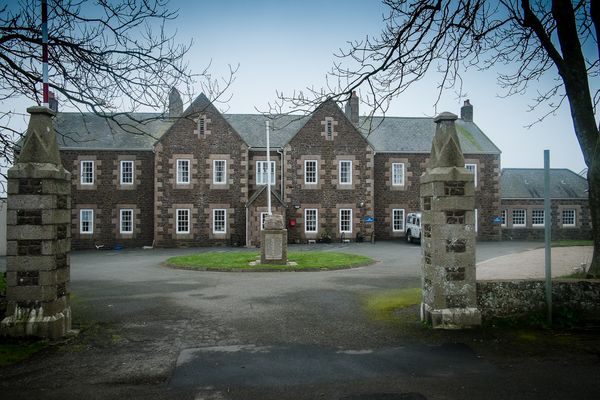

Two former police officers have been accused of scaremongering the Jersey public into believing paedophile rings were rife in the Island, and exaggerating the level of corruption in the Island's police.
Speaking in the final week of public hearings at the Jersey Care Inquiry, States of Jersey Law Officers’ Department barrister, Mr Oliver Glasgow QC, today said ex-police officers Lenny Harper and Graham Power made numerous claims but with no evidence to back up their “spurious” allegations.
Mr Glasgow urged the panel, chaired by Ms Frances Oldham QC, not to rely on both retired officers’ allegations, as they were not fact-based.
The two-year inquiry, costing at least £23million, is in its final stages this week, with a report expected later this year.
Mr Glasgow said the officers - a former police chief and a senior detective - publicly aired their belief that paedophile rings were “rife” in Jersey, but with no evidence to reinforce their claims.
“Despite the absence of anything to support their allegations, it is worth pointing out that both men, in comments made, allowed and indeed encouraged, the public to believe that Jersey was riddled with corruption,” said Mr Glasgow. “There is an abundance of evidence to demonstrate that in comments made by Mr Power and Mr Harper.
“None of these cases should have caused the Jersey public to believe that child abuse was rife on the island - but, we submit, that because of the attitude of Mr Power, this belief was allowed to fester and gather momentum. His claim, which he presented to the panel as fact, is that there were paedophile rings on Jersey.
“If Mr Harper is the talented investigator that he is presented as being, why was no evidence of such widespread paedophile activity ever presented to the Law Officers’ Department by the States of Jersey Police? Whether there was actually a paedophile ring in Jersey at any time must simply be a matter of conjecture since the panel has heard no evidence to support such a claim."
Mr Glasgow then turned to the officers’ allegations of widespread corruption within Jersey Police.
He said: “Mr Harper’s assumption was that the level of corruption in the States of Jersey Police was far worse than that he had experienced in Strathclyde. But it is exactly that, an assertion. There has been painfully little evidence to support Mr Harper’s claim. We invite the panel to take great care before accepting Mr Harper’s assumption, without evidence, that the levels of corruption in Jersey Police was worse than in his previous employment.
”Mr Power made a complaint that the States of Jersey Police had been guilty of inappropriate, illegal and unprofessional behaviour by officers, with regard to the leaking of information to criminals. But again, we invite the panel to think very carefully before accepting as fact the allegations provided by Mr Power, for which there is absolutely no supporting evidence that he has provided at any stage.
“We repeat that the making of sweeping allegations by someone who should know better is a surprise - and furthermore it comes from someone who once held a position of seniority at Jersey Police. They are nothing more than assertions and are unsupported by any evidence and cannot be accepted as right.
“We invite the panel to ignore these allegations when considering the relevance and significance of these corruption claims.”
Mr Glasgow added that Mr Harper and Mr Power also claimed they had been hindered in their investigations, while they were still serving police officers.
Mr Glasgow said: “Harper claimed he did face opposition to his decisions, but as we have found with other assertions he has made, he was unable to offer any concrete examples to support those claims. It is, we submit, for the panel to determine whether to accept these claims, with no evidence to support them.
“Various reputations have been tarnished by spurious accusations into misconduct. There is no evidence at all to support their clams and neither did they (Harper and Power) do anything to investigate what they had described as serious criminal wrong-doing. In the absence of that supporting evidence the panel must feel a reluctance in accepting as true, the claims that have been made.”
Comments
Comments on this story express the views of the commentator only, not Bailiwick Publishing. We are unable to guarantee the accuracy of any of those comments.